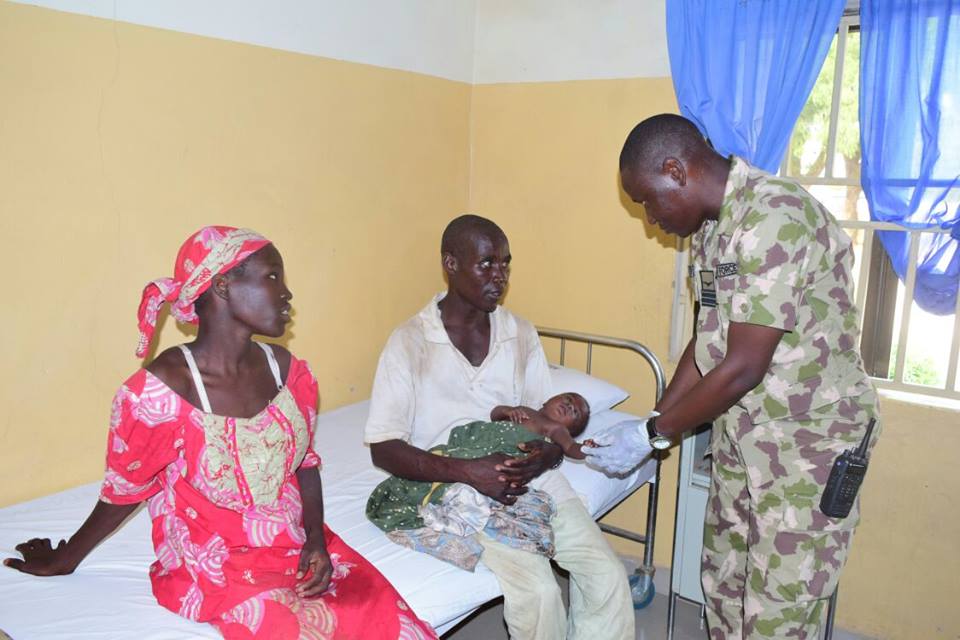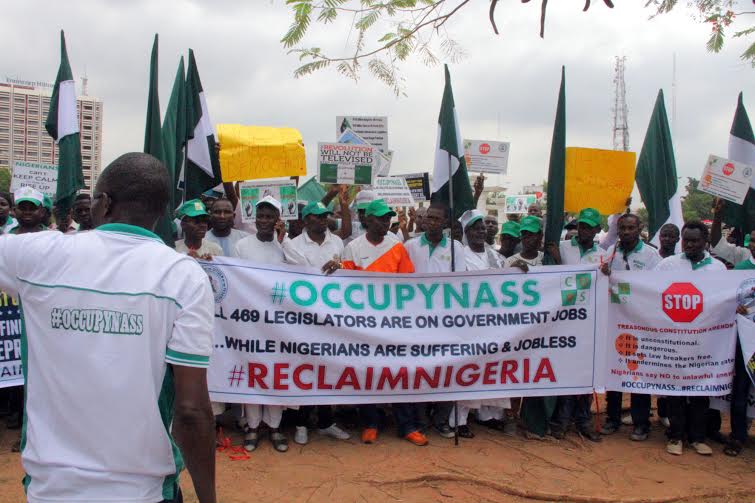By Aminu Adamu Naganye
After decades of oil boom in Nigeria and the attendant failure by the successive past administrations to diversify the economy, oil doom is now giving us hard lesson as a nation. From over $100 per barrel of oil to now unstable below $40 per barrel, Nigeria with its anticorruption crusader Muhammadu Buhari is taking Spartan and austere measures to finance its 2016 budget proposal that has got president’s signature appended.
Rich and poor Nigerians feel different degrees of economic downturn at the moment after resources from the public coffers /treasure have been shared by corrupt public officials who betrayed trust of the masses. In the last five years or so, federal and state governments have been trying to diversify the economy from being oil dependent to other resources notably agriculture and mineral resources. Though the sincerity of the federal and state executives was questionable by their action or inaction; commission or omission in the past towards agricultural industry as only little success can be visible.
Some even argue that had some governors were genuinely committed to marching their talks with actions and not giving lip services or political rhetoric; Nigeria should have seized to import rice and other agricultural produce that are doable in Nigeria and perhaps even if it won’t be as exporter as brazil or Kenya, agriculture should have added more than what it does to Nigeria’s economy.
However, with the sudden change particularly at the centre together with the obvious instability in oil prices, the federal along other tiers of government have to focus more on exploring and utilising other rich resources available in Nigeria especially mineral resources and agriculture. On this note therefore, the agriculture should be tilted towards providing/meeting basic agricultural needs of Nigeria such as rice, flour, corn, tomatoes etc at least in the short term plan before embarking on an ambitious long term plan that can focus on export-driven needs of other countries that can create opportunities for Nigeria and Nigerians.
Advertisement
It is worthy of note that some parts of Nigeria have had their first rain in 2016 which is very important ahead of forthcoming rainy season; of course many haven’t. Though, falling of rain differs with the region and vegetation found there; it is however safer to say that rainy season is close to manifesting in at least most parts of northern Nigeria. With the change at the federal and most states governments, accompanied by falling in oil prices there is no better time that all those making mouth about agriculture should stop talking and act now, not later.
Farmers individually and collectively as members of cooperative societies certainly prefer any form of aid or support from the concerned authorities now before the rain fall; before sowing/planting and before it becomes late! Medicine after death as it’s used to be the case should not be seen this time around. From personal observation through to mingling with small individual farmers who constitute over 70% of Nigeria’s active agricultural actors, relevant authorities can bring succour to poor Nigerian farmers at least via the following four ways in their effort to boost agriculture to engage teeming unemployed in the country. Firstly, farmers need seeds.
They don’t just need any kind of seed but modern hybridised seeds that can endure the current change in nature brought about by climate change and global warming. This is indispensable in view of the late arrival and early termination of wet season in most northern states. Agricultural research institutions in collaboration with faculties of agriculture in universities should focus on seed hybridisation/improvement that can give farmers something to cheer up. President Buhari announced setting 3 Billion Naira sometimes this year in Sokoto during the 32nd convocation ceremony of Usman Danfodio University for research in Nigerian universities. Agriculture related faculties in universities across Nigeria can make use of this opportunity.
Advertisement
Secondly, modern farm implements are necessary in modern agriculture. This is because modern agriculture can no longer be doable with obsolete farm equipment that is used by most Nigerian farmers in their age old subsistent agriculture. Tractors, bulldozers, sprayers etc should be made available to farmers’ cooperative societies at subsidised loans payable at a convenient time. Thirdly, soil fertility and arability is on decline, as such farmers need fertiliser to support their farming activities and consequently maximise production. Fertiliser should be made available to all the needy farmers as and when due, certainly before the rain fall.
This is crucial because farming today without fertiliser is as simple as fighting bokoharam without bullets! Accolades must be credited to the federal ministry of agriculture for initiating fertiliser distribution scheme directly through farmers’ mobile phones in the last three years or so. This is an innovation of the Jonathan’s government that should be retained and upheld. Though there may be shortcomings in the programme; careful analysis and review of the programme can make it more efficient. Lastly, funds in form of soft loans should be provided to the farmers without long and unnecessary processes or hitches that often render farmers helpless when applying for loans from conventional banks.
President Buhari’s recent directive to Central Bank of Nigeria (CBN) to review and mollify collaterals that farmers can present to banks is a welcome development. Similarly, cutting the interest rate chargeable by commercial banks to farmers would make farmers have access to more funds that can improve and enhance their farming business. The two-day convened national economic retreat headed by Vice President Yemi Osinbajo few months ago and attended by all the 36 states governors to chart new course of action and pinpoint ways in which agriculture can revamp Nigeria’s economy is a good move that should be accompanied with action by all the stakeholders.
Coincidentally, some governors proved their commitment to reviving and supporting agriculture earlier prior to the economic summit. Governors Abubakar Atiku Bagudu of Kebbi State and Muhammadu Badaru Abubakar of Jigawa State trailed the blaze. The former procured 16 billion naira soft loan to rice farmers in his state of which 8 billion naira has been disbursed to the farmers to help supply Nigeria with rice and create job opportunities for teeming unemployed in the state.
Advertisement
Similarly, the latter collaborated with the affluent Aliko Dangote to launch a 20,000hectre rice farm scheme in Jigawa few months ago of which 400 farmers were to receive free seed and fertiliser from Dangote Group of Company to farm 8,000 hectares whereas Dangote Group of Company was to farm 12,000 hectares of the scheme. At the ceremonious flag off of the scheme, the farmers were assured that their produce will be purchased by the Dangote Group to supply Nigeria with rice that will be locally produced against the current trend of importation from Brazil, India, Thailand, and Taiwan etc These issues raised aren’t exhaustive but can be handy as urgent interventions that can mollify farmers’ difficulties before the rain fall so as to anticipate a bumper harvest. Naganye writes from Bauchi.
Contact: [email protected]; 08142066713
Views expressed by contributors are strictly personal and not of TheCable.
1 comments







Nice piece.Keep it up.